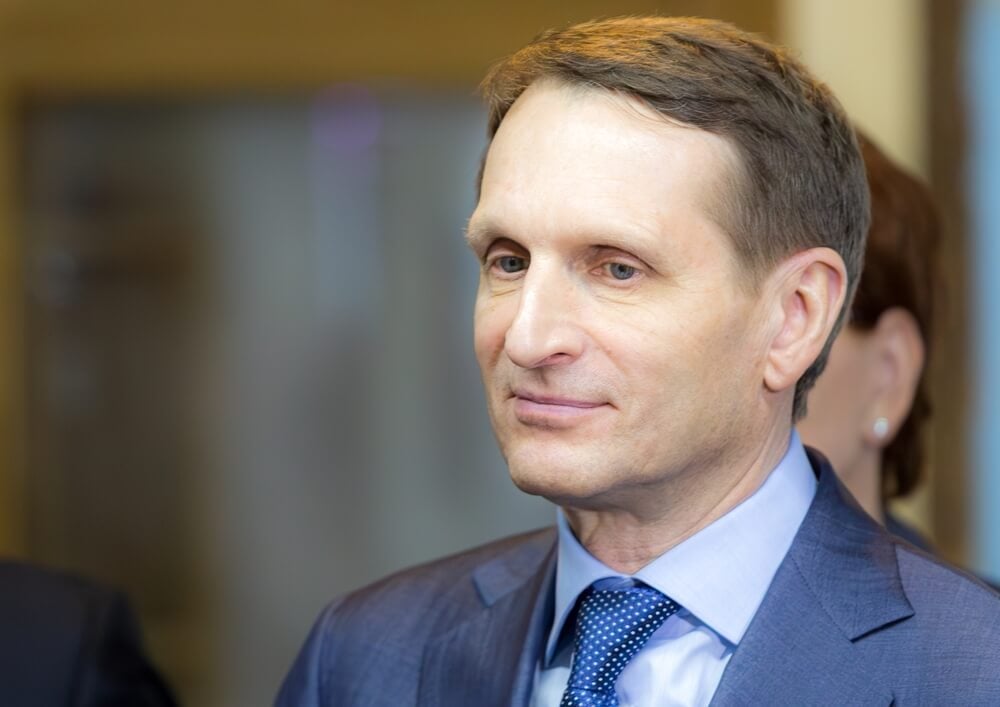In the 18th century, Russian emperor Peter the Great regularly had his detractors tortured, exiled to Siberia, and executed, sometimes for as little as directing “unseemly speech” at the sovereign.
In the mid-1930s, Joseph Stalin used fabricated charges of treason and coerced confessions to purge potential rivals, including many prominent Old Bolsheviks who were subjected to public show trials.
Russian President Vladimir Putin’s current fight against his perceived enemies – both inside and outside Russia – carries disturbing echoes of these bleak episodes.
Consider Kremlin critic Ilya Yashin’s October 2022 indictment – and 8.5-year prison sentence – for disseminating “fake” information about the Russian military.
The charges against Yashin were accompanied by the accusation that he had “a dislike for the [Russian] political system.”
At the time, the Stalinesque overtones were shocking. Three years later, they are par for the course.
Terrorism-related cases
The number of terrorism-related cases opened in Russia has soared since the country’s full-scale invasion of Ukraine, with convictions also rising, from roughly 350 the previous year to nearly 500 in 2022 and over 1,000 in 2024.
This year, Russian courts have been issuing at least five such verdicts per day, with over 600 convictions in just the first six months. By year’s end, the total could well exceed 1,500.
In fact, Russia’s rubber-stamp parliament just made it even easier to bring criminal charges against Putin’s critics by requiring nonprofits receiving “any assistance” from abroad to register as “foreign agents” and face increased government oversight.
Almost two dozen supposed foreign agents were charged with terrorism-related crimes
The “foreign agent” label was always a tool for punishing the Kremlin’s opponents, but it is now almost the equivalent of the Soviet-era designation “enemy of the people”: a precursor to a purge.
That became clear earlier this month, when almost two dozen supposed foreign agents – that is, exiled opposition figures who are members of the Russian Antiwar Committee, which was formed after the 2022 invasion – were charged with terrorism-related crimes.
The accused include former Yukos head Mikhail Khodorkovsky, who moved to London after his funding of Putin’s opponents earned him a decade-long stint in prison on trumped-up fraud and embezzlement charges.
Kremlin loyalists
But, like in the Stalin era, the current regime is prosecuting not only outspoken critics, but anyone the Kremlin believes might challenge its authority.
Once-trusted regional executives, influential politicians, and military leaders are regularly arrested and indicted on criminal charges, often involving corruption.
Many more Kremlin loyalists have lately been dubbed foreign agents, and one can only speculate why.
Might the pro-Putin propagandist Sergei Markov have gotten too cozy with Azerbaijan at a time when the country’s relations with Russia are deteriorating?
From the Bolsheviks to Putin, the objectives behind such confiscations are the same
Did the military blogger and Kremlin cheerleader Roman Alekhin go too far in lamenting Russia’s slow progress in Ukraine? Was Alexey Shevtsov, the former mayor of Plyos, too ambitious in his entrepreneurial ventures?
Like Khodorkovsky’s Yukos, Shevstov’s assets – including his thriving “izbing” business (glamping in traditional huts) – have now been seized by the government.
From the Bolsheviks to Putin, the objectives behind such confiscations are the same.
First, they enrich the state: since 2022, Russia has acquired some 3.9 trillion rubles ($49 billion) worth of assets from private business owners accused of crimes ranging from embezzlement to treason.
Second, they limit potential rivals’ ability to mount effective opposition.
Russia’s elites are becoming increasingly anxious
As Putin’s regime doles out harsh punishments, using laws as it sees fit, Russia’s elites are becoming increasingly anxious.
But one need not be Russian to end up in Putin’s crosshairs. Just as Stalin viewed virtually everyone outside the Soviet Union as a potential impediment to his cultivation of “socialism in one country,” Putin is convinced that Russia is a “distinct civilization” that is under assault by a West bent on destroying it.
The Kremlin’s anti-Western rhetoric has become increasingly unhinged during the Ukraine war.
 The Russian Foreign Intelligence Service (SVR) accused the United Kingdom of preparing a “vile provocation” - Sergey Naryshkin
The Russian Foreign Intelligence Service (SVR) accused the United Kingdom of preparing a “vile provocation” - Sergey Naryshkin
But it reached new heights this month, when the Russian Foreign Intelligence Service (SVR) accused the United Kingdom of preparing a “vile provocation”: a false-flag operation involving a group of Ukraine-aligned Russians, equipped with “Chinese-made gear,” who were to attack a Ukrainian Navy ship or a foreign civilian vessel in a European port.
Such fabrications reflect cultural resentment as much as they do geopolitical insecurity.
If the Russians are the villains in British spy films, the British are the villains in Russian intelligence propaganda.
The reasons for the Kremlin’s growing fixation on Russia’s supposed enemies are not difficult to discern.
Disillusionment with the Ukraine war is growing, even among those who once bought into Putin’s nationalistic propaganda.
With inflation running at over 8%, many Russians are struggling to afford basic needs like food, fuel, utilities, and medicine.
Economic growth is slowing, and the budget deficit swelled to 4.88 trillion rubles in the first half of this year – well beyond the 3.8 trillion-ruble deficit planned for all of 2025.
And for what? In almost four years, Russia has managed to occupy less than 12% of Ukraine’s territory.
Russians were promised a quick victory in Ukraine; instead, they have gotten a protracted and costly conflict reminiscent of the Afghan quagmire that contributed to the collapse of the Soviet Union.
None of this is lost on Putin, who is now seeking to forestall any threat to his position through punishment and fear. Meanwhile, the war drags on, and the body count grows.
Nina L. Khrushcheva is a Professor of International Affairs at The New School.